Elements of Digital Citizenship
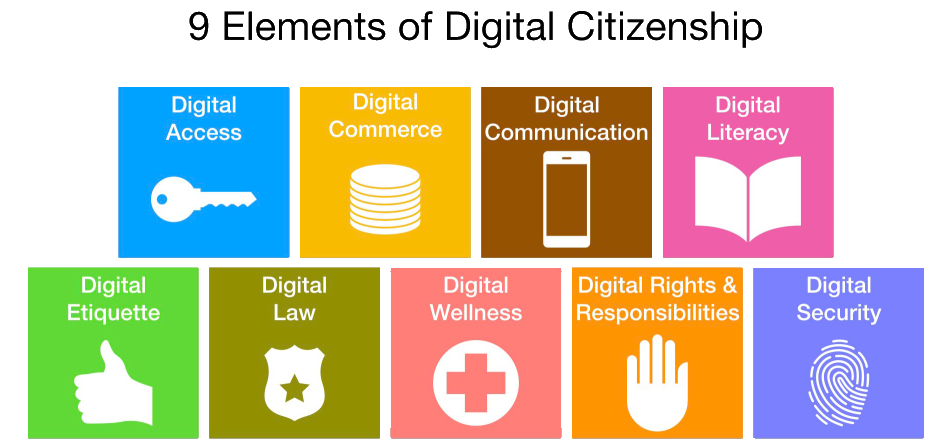
With the rise of the Internet, we have become more and more present in the online world. This has come with its own sets regulations which we have to abide by. So, existing in this environment, working, learning, doing business, communicating just like we do in real life make us citizens of this digital world. As digital citizens, we have both rights and obligations and that is why learning more about the concept of digital citizenship is crucial.
Thus, we need to contribute to the online world with appropriate content that can create positive experiences for others and acknowledge the fact that our actions as digital citizens have consequences.
As far as any online environment is concerned, it should be a safe one in which everyone feels protected and not vulnerable. Moreover, it should promote a better understanding of all its implications and contribute to the process of educating users for long term positive outcomes. In addition, as digital citizens we have to create cooperative and interdependent relationships promoting understanding of one another.
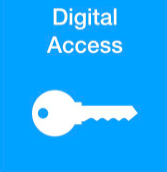
Digital Access
Although we live in a digital era, not everyone has access to technology. As teachers, we should be aware of the needs students have and try to ensure they can equally make use of online resources.
In an effort to help facilitate access Nebo has mounted outdoor wireless access points at all locations to allow students access.

Digital Commerce
Digital Commerce refers to selling and buying things online and the necessity to tackle safety issues while using money in the digital world. Technology is also used in class to showcase students the possible paths to take in their prospect careers opening their way to a future job. Understanding how e-commerce works is a must, both as possible customers and as potential entrepreneurs.
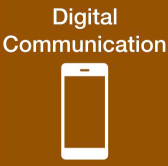
Digital Communication
Communicating online has become so common and so frequent that students forget they are doing so in a virtual space. The need to know how and what to say is undeniable since miscommunication happens all the time even online. Nowadays though, the online has given a voice to anyone who needed it. They can express themselves freely and be themselves. This in turn requires a person to be empathetic and react appropriately online and offline.
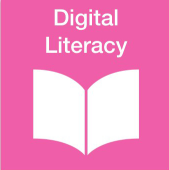
Digital Literacy
Education is the key to everything. Being aware of others while online or offline is important for our personal growth contributing also to spreading awareness of the way we treat each other in either space.
Digital literacy also includes reaching the ability to differentiate between real and fake content which otherwise can have great negative impact over the lives of students and adults altogether. Students need to learn how to use their free will and decide what content is good for them and what they should avoid in order to lead a balanced life.
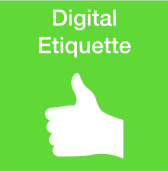
Digital Etiquette
Technology comes with basic instructions of usage, but in the long run we should educate students to understand it better and become “digitally fluent”. This will shape their online behavior and they will respond positively rather than negatively to any content or comment. In this way, the online attitude is transposed into the real world and vice versa.
Focusing on implementing an online etiquette will have great results for the future generations who will have the adequate attitude in the online world that avoids conflict rather than entice it hidden behind their virtual profiles.
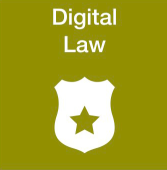
Digital Law
The online environment has room for both positive and negative interactions. And just like in real life, there are laws everyone should abide by. Digital law deals with the legal rights and restrictions governing technology use. Many online users are actually breaking the law, either knowing or not knowing, from identity theft to hacking into someone else’s email to cyberbullying to downloading copyrighted music to using. To prevent any kind of online crime, no matter how serious, students as digital citizens need to know the law.
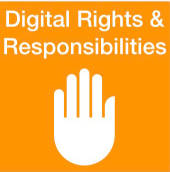
Digital Rights and Responsibilities
Like in any real society, the online world has its regulations. That means that as a user one has rights, but also responsibilities. There are rules and policies to follow that imply the possibility of being held accountable for your actions and deeds in the online world.
The Internet can also be used for harming purposes and anyone using it needs protection structures against cyberbullying, for instance. Schools should approach this subject in class making the students take responsibility for their actions and also recognize and report any misconduct in the virtual environment.
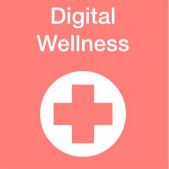
Digital Health and Wellness
We live equally as much in the online world as in the real one, so the requirements and freedoms of the individual in real life have to be extended to the digital world. Everyone present in the online world has to contribute to the well-being of a person online helping others in need. Students should be taught to protect themselves and others from possible harm and alert an adult if it’s the case. Making use of online resources is a plus, but one should be aware of the dangers that reside with this benefit.
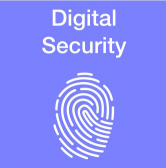
Digital Security
Security in the online world is important since viruses and worms can go from system to system and affect the electronic devices we use. Precautions need to be taken to guarantee their safety. Moreover, when using devices in school or at home, students have to understand the implications of it and be aware of possible attacks. Teachers should also explain how to prevent them from happening and how to protect their devices. This is a necessary skill in today’s digital world.